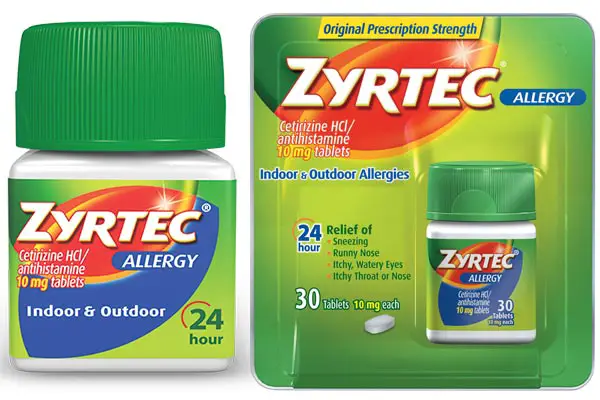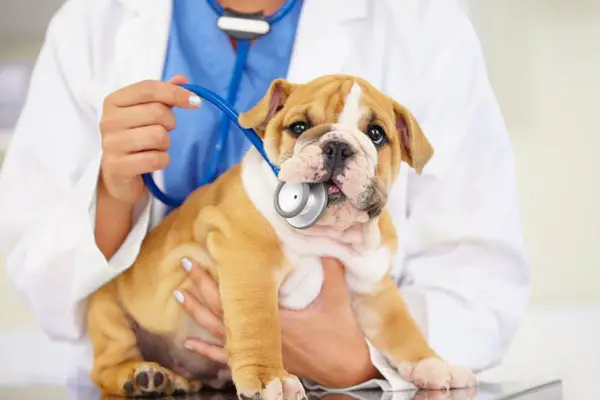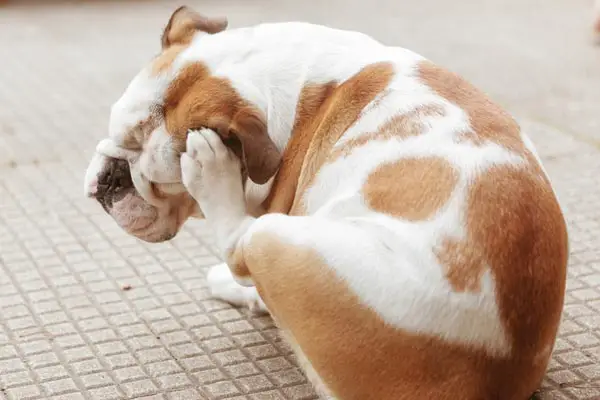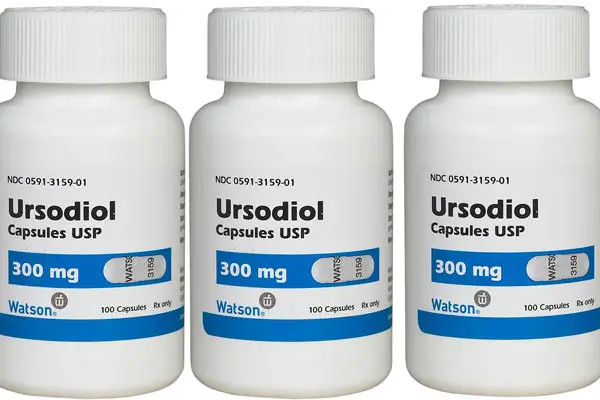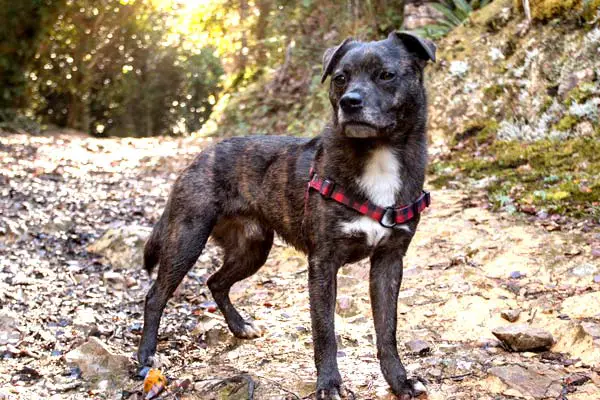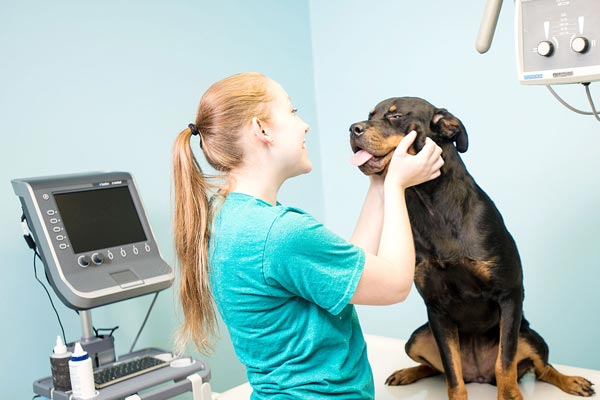Why Your Dog’s Breath Smells Like Fish: Causes & Remedies
Does your furry friend have breath that smells like fish? It may be more than just an unpleasant odor – it could be a sign of an underlying issue.
Bad breath in dogs, commonly called fishy dog breath, can be caused by various factors. Poor dental hygiene, dietary issues, diabetes, kidney problems, and liver disease are all potential contributors to this unpleasant odor. Identifying the root cause and seeking appropriate treatment to address the issue is essential.
Common Causes of Fishy Dog Breath
Poor dental hygiene is often the culprit for fishy dog breath. Like humans, dogs need regular dental care to maintain fresh breath. If their teeth are not properly cleaned, plaque and tartar can build up, creating a breeding ground for bacteria and an unpleasant odor.
Dietary issues can also contribute to fishy breath in dogs. Some dogs may have a habit of eating poop, which can introduce foul-smelling bacteria into their mouths. An imbalanced gut microbiome can also affect digestion and lead to bad breath.
Furthermore, certain health conditions can cause fishy breath in dogs. Diabetes, kidney problems, and liver disease can all impact a dog’s breath. It’s essential to address these underlying issues and seek appropriate treatment to help alleviate the fishy odor.
| Common Causes of Fishy Dog Breath | Symptoms |
|---|---|
| Poor dental hygiene | Plaque and tartar buildup, bacterial growth |
| Dietary issues | Eating poop an imbalanced gut microbiome |
| Diabetes | High blood sugar levels, fruity or sweet breath |
| Kidney problems | Decreased kidney function, ammonia-like breath |
| Liver disease | Impaired liver function, foul-smelling breath |
When to Be Concerned About Fishy Dog Breath
Fishy dog breath can be a symptom of underlying health issues. Dog owners must be aware of signs that indicate when fishy breath may cause concern.
Paying attention to these signs can help identify potential health problems and ensure that prompt medical attention is sought.
Possible Underlying Health Issues
While occasional bad breath is normal, persistent fishy breath and other signs should not be ignored. Loss of appetite and vomiting, for example, can be indicative of oral injuries or liver disease.
Oral injuries can lead to infections or abscesses, causing a foul odor in a dog’s breath. Liver disease can also manifest as fishy breath, as the liver plays a role in detoxifying the body, and any dysfunction can result in unpleasant odors.
Importance of Early Detection
Early detection of health issues linked to fishy dog breath can significantly improve the prognosis and treatment outcome.
Regularly monitoring a dog’s breath and overall behavior can help identify any changes that may be a cause for concern.
If fishy breath persists or worsens, it is recommended to schedule a veterinary examination to determine the underlying cause.
Seeking Prompt Medical Attention
If a dog’s breath consistently has a fishy odor, it is essential to seek prompt medical attention. A veterinarian can thoroughly examine, conduct necessary tests, and provide appropriate treatment options.
Treating Your Dog’s Bad Breath
Here are some effective strategies for treating your dog’s bad breath.
Dental Cleaning
Professional dental cleaning is essential to treating your dog’s bad breath. During a dental cleaning, a veterinarian will thoroughly examine your dog’s teeth and gums, remove plaque and tartar buildup, and address any dental issues. This procedure helps improve breath and prevents the progression of dental diseases.
Home Oral Hygiene
In addition to professional dental cleaning, regular home oral hygiene practices are vital for maintaining your dog’s fresh breath.
Brushing your dog’s teeth daily with dog-friendly toothpaste helps remove plaque and bacteria. You can also provide dental treats or toys that promote chewing, which can help clean your dog’s teeth and freshen their breath.
| Treatment Method | Description |
|---|---|
| Dental Cleaning | A professional procedure performed by a veterinarian to remove plaque and tartar buildup on your dog’s teeth. |
| Home Oral Hygiene | Regularly brush your dog’s teeth with dog-friendly toothpaste and provide dental treats or toys for chewing. |
| Treating Underlying Conditions | Managing specific health conditions like diabetes or liver disease to improve breath. |
Periodontal Disease in Dogs
Periodontal disease is a common dental condition among dogs, characterized by inflammation of the gums and surrounding tissues. It is caused by plaque build-up, a sticky film of bacteria, on the teeth. If left untreated, periodontal disease can lead to tooth loss, pain, and even systemic health problems.
To better understand periodontal disease in dogs, here are some key points:
1. Gingivitis
Gingivitis is the earliest stage of periodontal disease. It is characterized by red, swollen, and bleeding gums. Gingivitis can be reversed with proper dental care if caught at this stage.
2. Plaque and Bacteria
Plaque is a sticky film on the teeth that forms when bacteria combine with food particles. If not removed through regular brushing and professional cleanings, plaque hardens into tartar, which can only be removed by a veterinarian.
3. Dental Care
Regular dental care is crucial in preventing and managing periodontal disease in dogs. This includes daily tooth brushing, providing dental chews or toys, and scheduling professional dental cleanings as a veterinarian recommends.
| Signs and Symptoms | Treatment Options |
|---|---|
|
|
“Periodontal disease can have serious implications for a dog’s overall health. The bacteria in the mouth can easily enter the bloodstream and affect vital organs, including the heart and kidneys. Regular dental care is essential in ensuring the well-being of our furry friends.”
Impacted Anal Glands and Fishy Breath
The presence of a fishy odor in a dog’s breath can sometimes be attributed to impacted anal glands. These tiny sacs, located on either side of the anus, typically release a foul-smelling secretion during bowel movements to mark their territory.
However, when the glands become impacted and empty correctly, it can lead to unpleasant breath in dogs.
Dogs with impacted anal glands may exhibit cleaning behavior, such as excessive licking or scooting their bottoms across the floor.
This behavior is an instinctive attempt to relieve discomfort and address the issue. If left untreated, impacted anal glands can cause further complications, including infection and abscess formation.
Table: Symptoms and Treatment of Impacted Anal Glands
| Symptoms | Treatment |
|---|---|
| Fishy odor in the breath | Manual expression of anal glands by a veterinarian |
| Excessive cleaning behavior (licking, scooting) | A high-fiber diet to promote regular bowel movements |
| Swelling or redness around the anus | Regular gland expression to prevent future impaction |
Coprophagia and Fishy Breath
One of the possible causes of fishy breath in dogs is coprophagia, which is the habit of eating animal waste. This behavior can lead to an unpleasant smell in your dog’s mouth.
Coprophagia is often a sign of digestive issues, such as food allergies or sensitivities that affect the digestive system.
Food Allergies and Sensitivities: Some dogs prefer eating waste due to dietary issues. Food allergies or sensitivities can cause discomfort in the digestive system, leading to abnormal behaviors like coprophagia.
Identifying and eliminating any potential allergens from your dog’s diet is essential. A veterinarian may recommend a specialized diet to help alleviate the symptoms and reduce the likelihood of coprophagia.
Poor Digestion: Dogs with poor digestion may not absorb nutrients properly, leading to cravings for specific substances, including feces.
It’s essential to address any underlying digestive issues and promote healthy digestion. Adding supplements or probiotics to your dog’s diet can help improve their gut health and reduce the urge to eat waste.
Training and Management: If your dog has developed the habit of eating waste, training and managing their behavior is crucial. Keep the environment clean by promptly removing feces and providing opportunities for physical and mental stimulation to redirect their focus.
Positive reinforcement training can also effectively discourage coprophagia and reinforce more appropriate behaviors. Consult with a professional dog trainer or behaviorist for guidance on training techniques.
Preventing Coprophagia:
Here are some tips to help prevent coprophagia:
- Ensure your dog is on a balanced diet that meets their nutritional needs.
- Avoid feeding your dog foods that may trigger allergies or sensitivities.
- Keep your dog’s environment clean and free of waste.
- Supervise your dog during walks to prevent them from consuming waste.
- Provide regular exercise and mental stimulation to keep your dog engaged.
- Implement positive reinforcement training techniques to discourage coprophagia.
- Consult with a veterinarian or professional dog trainer for additional guidance.
The Connection Between Gut Health and Breath
Gut health is closely linked to overall well-being, and an imbalance in the gut can lead to various health problems, including bad breath.
Digestive problems can cause an overgrowth of harmful bacteria, resulting in foul-smelling breath. Additionally, respiratory problems can create an environment where bacteria thrive, leading to an unpleasant odor.
To improve your dog’s gut health and freshen their breath, consider introducing probiotics and prebiotics into their diet.
Probiotics are beneficial bacteria that can help restore the natural balance of your dog’s gut microbiome, while prebiotics provide the necessary nutrients for these bacteria to thrive.
You can find dog foods containing probiotics and prebiotics or consider supplements your veterinarian recommends.
Furthermore, switching to an easily digestible diet can also promote better gut health and fresher breath. Look for dog foods formulated to be gentle on the digestive system, with high-quality ingredients and limited allergens.
A healthy gut can help improve your dog’s overall well-being and contribute to fresher breath.
| Gut Health and Breath | Benefits |
|---|---|
| Improved Digestion | Reduces the risk of digestive problems that can contribute to bad breath. |
| Healthy Gut Microbiome | Promotes the growth of beneficial bacteria, which can help maintain a balanced gut microbiome. |
| Reduced Odor-Causing Bacteria | Creates an environment in the gut that is less favorable for the growth of odor-causing bacteria. |
| Enhanced Overall Well-being | It improves your dog’s overall health and contributes to fresher breath. |
The Role of Diet in Bad Breath
The Importance of Omega Fats
Dietary choices that include omega fats can affect your dog’s breath. While omega fats offer numerous health benefits, they can produce a fishy odor in your pet’s breath.
Omega fats are often found in fish or fish oil, leading to an unpleasant smell. However, it’s important to note that omega fats are essential for your dog’s overall health and should not be eliminated from their diet.
Promoting Dental Health through Diet
Choosing a diet that supports dental health can help combat bad breath in dogs. Look for dog foods that are specifically formulated to improve oral hygiene.
These foods may contain ingredients that promote healthy teeth and gums, such as antioxidants, enzymes, and unique kibble shapes that help remove plaque and tartar.
Supplements for Fresh Breath
In addition to a balanced diet, certain supplements can help freshen your dog’s breath. Supplements containing ingredients like parsley, peppermint, or chlorophyll can help neutralize odor-causing bacteria in the mouth.
However, it’s always best to consult your veterinarian before introducing new supplements into your dog’s routine.
| Food to Include | Food to Avoid |
|---|---|
| Fresh fruits and vegetables | Sugary or sticky treats |
| Lean meats | Highly processed foods |
| Dog-friendly dental chews | Bones or hard chew toys that can damage teeth |
| Dog-specific dental diets | Foods with strong odors |
Preventing and Managing Bad Breath
Dental cleanings by a veterinarian play a crucial role in preventing bad breath in dogs. A professional cleaning helps remove built-up plaque and tartar, which can contribute to foul odors.
During the cleaning, the vet will also thoroughly examine your dog’s teeth and gums to identify any dental issues that may be causing the bad breath.
Regular teeth brushing is another essential aspect of dental care for dogs. Brushing your dog’s teeth daily with a dog-friendly toothpaste helps remove plaque and bacteria, reducing the chances of bad breath.
Be sure to use a toothbrush specifically designed for dogs and introduce tooth brushing gradually to make it a positive experience for your furry friend.
In addition to dental cleanings and brushing, providing dental chews can help keep your dog’s breath fresh.
Dental chews promote chewing and saliva production, which can help prevent plaque buildup. Look for dental chews specially formulated to improve oral health and freshen breath.
Promoting Good Oral Health for Fresh Breath
To summarize, preventing and managing bad breath in dogs involves:
- Regular dental cleanings by a veterinarian
- Daily teeth brushing with dog-friendly toothpaste
- Providing dental chews to promote chewing and saliva production
Importance of Good Gut Health for Fresh Breath
Why Gut Health Matters
A healthy gut is essential for proper digestion and nutrient absorption. When the gut microbiome is balanced, it helps break down food efficiently and prevents the growth of harmful bacteria.
This balance not only promotes better digestion but also contributes to fresher breath. On the other hand, an imbalanced gut can lead to digestive issues, including gas and bloating, which can contribute to unpleasant breath odor.
The Role of Probiotics and Prebiotics
Probiotics and prebiotics are beneficial for maintaining a healthy gut microbiome. Probiotics introduce beneficial bacteria into the gut, while prebiotics serve as food for these bacteria.
Together, they help restore and maintain the balance of the gut microbiome, improving digestion and reducing the likelihood of bad breath.
Including foods rich in probiotics, such as yogurt or kefir, and prebiotic-rich foods, like bananas or oats, can promote a healthier gut and fresher breath.
Improving Gut Health for Fresh Breath
In addition to incorporating probiotics and prebiotics into your dog’s diet, there are other ways to support their gut health. Avoid feeding your dog low-quality or highly processed foods, as they can disrupt the gut microbiome.
Instead, opt for high-quality, easily digestible dog food rich in nutrients. You can also consult your veterinarian about specific supplements supporting gut health.
| Gut-Healthy Foods | Benefits |
|---|---|
| Yogurt | It contains probiotics that promote a healthy gut microbiome. |
| Kefir | It is rich in probiotics and can improve digestion. |
| Bananas | It contains prebiotics that nourish beneficial gut bacteria. |
| Oats | Rich in prebiotic fiber that supports a healthy gut. |
| Pumpkin | It is high in fiber and can soothe digestive issues. |
Conclusion: Achieving Fresh Breath for Your Dog
Dental health plays a crucial role in your dog’s overall well-being. Regular dental cleanings by a veterinarian, daily teeth brushing with toothpaste suitable for dogs, and providing dental chews can help prevent plaque and tartar buildup, reducing the chances of bad breath. Good oral hygiene is vital to maintaining fresh breath and preventing dental issues.
In addition to dental care, it is essential to consider your dog’s gut health. A healthy gut microbiome can contribute to fresh breath. Incorporating probiotics and prebiotics into your dog’s diet can help support good gut health and improve digestion. Certain dog foods are formulated with probiotics and prebiotics, providing a convenient way to promote a healthy gut and fresher breath.
FAQ
What are the common causes of fishy dog breath?
The common causes of fishy dog breath include poor dental hygiene, dietary issues, diabetes, kidney problems, and liver disease.
When should I be concerned about my dog’s fishy breath?
You should be concerned about your dog’s fishy breath if it is accompanied by loss of appetite, vomiting, or oral injuries.
How can I treat my dog’s bad breath?
Treatment for bad breath in dogs depends on the underlying cause. It may involve professional dental cleaning, home oral hygiene practices, or managing underlying health conditions.
What is periodontal disease in dogs?
Periodontal disease in dogs is a severe condition caused by plaque accumulation and bacteria along the gum line, leading to inflammation and separation of the gums from the teeth.
How can impacted anal glands cause fishy breath in dogs?
When the anal glands become impacted, dogs may exhibit excessive cleaning behavior, leading to a foul odor on their breath.
Can coprophagia cause fishy breath in dogs?
Yes, coprophagia, the habit of eating waste, can lead to fishy breath in dogs. It may be a sign of digestive issues or food allergies.
What is the connection between gut health and dog breath?
Gut health can have a significant impact on a dog’s breath. Digestive problems and respiratory issues can contribute to fishy breath.
Does diet affect a dog’s breath?
Yes, a dog’s diet can play a role in their breathing. Foods containing fish or fish oil can contribute to a fishy odor. Omega fats, found in many pet foods, can also affect breath.
How can I prevent and manage bad breath in dogs?
Preventing and managing bad breath in dogs involves regular dental care, including dental cleanings, teeth brushing, and providing dental chews. Good gut health is also crucial, which can be supported through probiotics and prebiotics.
Why is good gut health important for fresh breath in dogs?
Good gut health is essential for fresh breath in dogs as it helps improve digestion and promotes a healthy gut microbiome.
How can I achieve fresh breath for my dog?
Achieving fresh breath for your dog involves addressing the underlying causes, such as dental issues or gut problems.

